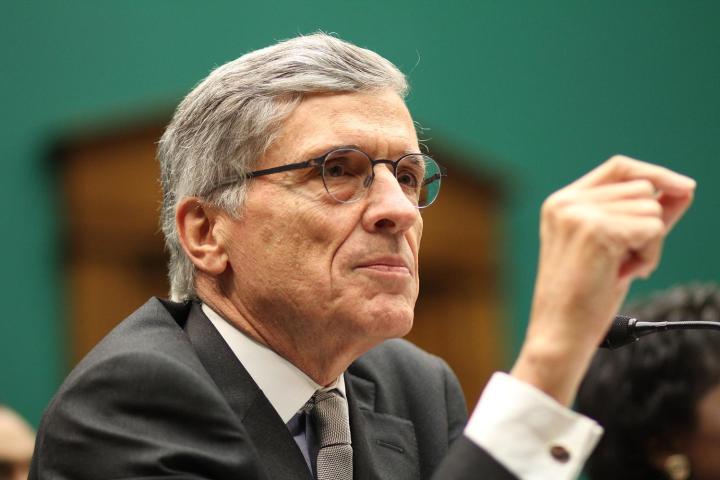
Federal Communications Commission Chairman Tom Wheeler was the target of bipartisan condemnation in Congress over his agency’s Net neutrality proposals. The FCC, which recently approved a new proposal that may pave the way for “paid prioritization” of certain types of Internet traffic, was criticized for raising the possibility of an Internet divided between the haves and have-nots. During an oversight hearing, members of the Energy and Commerce Committee subcommittee on communications and technology took turns condemning the proposed rules’ most controversial aspect.
Please read our Net Neutrality Timeline. It explains the issue in more detail.
“I just want to say to you that I am opposed to any form of paid prioritization. Paid prioritization divides the Internet into ‘haves’ and ‘have nots’ and it will entrench the big companies at the expense of start-ups,” said Rep. Henry Waxman (D-Ca).
“Paid prioritization represents a fundamental departure from the Internet as we know it,” added Rep. Anna Eshoo (D-Ca).
While the proposed rules ask the public to comment on whether to ban paid prioritization, Wheeler wouldn’t commit to blocking it outright. Eshoo attempted to get a straight answer from Wheeler on the provision. However, the Chairman dodged the question by reciting his previous statement.
“Paid prioritization represents a fundamental departure from the Internet as we know it,” added Rep. Anna Eshoo (D-Ca).
Eshoo asked: “As a policy, not as a legal question, do you think paid prioritization should be blocked outright? Wheeler answered: “So I have said that I don’t believe there ought to be have and have nots.”
The exchange ended with Eshoo repeating the question emphatically and Wheeler mentioning their 2010 court defeat against Verizon. “The court told us to look at this on a case-by-case basis. We have asked the question in the ruling as to whether we should look at it generically and say it’s all out,” he said.
While Democrats expressed dismay over the inequality the new rules may put in place, Republicans were more specific in their opposition to the proposals. Congressional Republicans criticized the FCC for bringing up the ISPs as a public utility under Title II of the Communications Act.
“The modern communications landscape bears no resemblance to the world Title II was meant to regulate and application of Title II to the Internet is, at best, a poor fit. Worse still, the practical consequences of reclassification are to give the bureaucrats at the FCC the authority to second-guess business decisions and to regulate every possible aspect of the Internet,” said Rep. Greg Walden (R-Or) in a prepared statement.
“Attempting to reclassify it would be harmful to consumers, businesses and the future of the Internet as we know it,” said Rep. Fred Upton (R-Mi).
The proposed rules have far-reaching effects. With large mergers like AT&T’s $48.5 billion purchase of DirecTV playing out as the FCC decides on the proposal, lawmakers wanted assurances that public interest would be a top priority for the agency.
“These large mergers before us, they may be different to each other, but can you commit to us here that the FCC will carefully scrutinize these deals with a focus towards public interest?” said Rep. Doris Matsui (D-Ca)
“Without hesitation and with complete affirmation,” Wheeler replied.
The FCC has posted Wheeler’s testimony on its website . The agency has opened the proposed rules for public comment for four months. If you want to contribute, you can add a comment at www.fcc.gov/comments.

